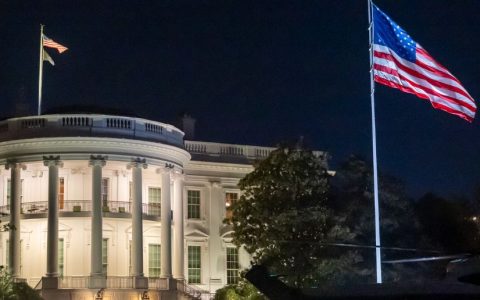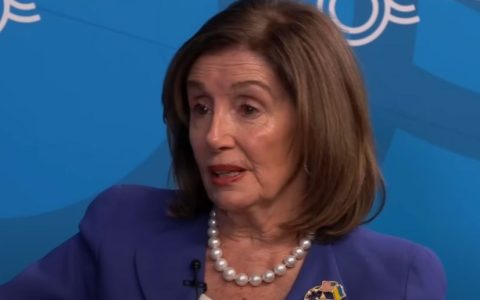
Trump’s Attorney General Pam Bondi is no nonsense. She’s showing up to fight fire with fire.
And the U.S. Attorney General just dropped a document on Democrats that left their jaws on the floor.
Deported Illegal Immigrant Who Democrats Are Defending Confessed To Entering US Illegally
Kilmar Abrego Garcia, a deported El Salvadoran man, has a story that has ignited a firestorm of controversy. At the heart of a historic legal battle, Abrego Garcia’s own words to authorities in 2019, when he was first detained, paint an incriminating picture. He admitted to entering the United States illegally, crossing the southern border without permission, and confessed he had no grounds to seek asylum. Police reports released this week, coupled with evidence tying him to the notorious MS-13 gang, reveal a narrative far removed from the sympathetic portrait some have tried to craft.
The documents, made public by Attorney General Pam Bondi, lay bare the details of Abrego Garcia’s encounter with Prince George County police in Maryland, just outside Washington, D.C. In 2019, he was among a group of men detained, all of whom “freely admitted being citizens and nationals of El Salvador by birth and that they were present in the United States illegally.” The reports leave no room for ambiguity: “The subjects were not in possession of any immigration documents that would allow them to be in or remain in the United States legally.” This wasn’t a case of bureaucratic oversight or a desperate plea for refuge—it was a straightforward violation of U.S. law.
Abrego Garcia, then 23, didn’t shy away from detailing his journey during his 2019 interview with local police and federal immigration officials. He described crossing the southern U.S. border near McAllen, Texas, on or about March 25, 2012, after trekking through the desert for days. “Abrego Garcia is a citizen and national of El Salvador,” a Homeland Security summary of his arrest noted. “Record checks showed that Abrego Garcia has no immigration history.” His entry was unauthorized, his presence undocumented—a clear-cut case for immigration enforcement.
What’s more, when given the opportunity to claim humanitarian need or fear of persecution—grounds that could justify asylum—Abrego Garcia declined. He told authorities he was in good health and had no reason to fear returning to El Salvador. “Abrego Garcia has made no claims to USC or LPR and is amenable to removal under 212 (a) (6) (A) (i) of the Immigration and Nationality Act, as amended, in that Abrego Garcia is an alien present in the United States without being admitted or paroled, or who arrived in the United States at any time or place other than as designated by the Attorney General,” the report stated. His own words sealed his fate: he was willing to leave.
The evidence shows Kilmar Abrego Garcia has repeatedly been identified as a member of MS-13 by:
⁃ A Maryland county police gang unit
⁃ A reliable confidential informant
⁃ ICE officers
⁃ An immigration judge agreed
⁃ An appellate board agreed pic.twitter.com/ym0X4tYSAe— Attorney General Pamela Bondi (@AGPamBondi) April 17, 2025
Yet, the story doesn’t end there. The Trump administration, now in its second term, has faced a barrage of criticism from Democrats, certain media outlets, and Abrego Garcia’s family, who have painted him as a “Maryland father” unjustly torn from his home. They argue his deportation to El Salvador weeks ago was rushed and cruel. The administration, however, stands firm, pointing to two prior court orders that justified his removal. These weren’t arbitrary decisions but the culmination of legal processes, grounded in evidence like the reports now public.
Complicating matters, a federal judge recently ordered Abrego Garcia’s return to the U.S., a directive El Salvador’s president has defiantly refused. This international standoff has only intensified the scrutiny on the case, with the Trump administration doubling down on its commitment to enforce immigration laws. The release of these documents is a calculated move, a direct rebuttal to those who would recast a documented gang member as a victim.
The most chilling revelation in the reports is Abrego Garcia’s confirmed ties to MS-13, a gang so ruthless it’s been designated a foreign terrorist organization by President Donald Trump. The Prince George County Gang Unit didn’t mince words: “Per Prince Georges County Police Gang Unit, Abrego Garcia was validated as a member of the Mara Salvatrucha (MS13) Gang. Subject was identified as a member of the Mara Salvatrucha MS-13, ‘Chequeo’ from the Western Clique a transnational criminal street gang.” This wasn’t speculation—it was intelligence backed by police work.
The evidence of his gang affiliation is meticulous. Officers noted Abrego Garcia’s attire during his arrest: a Chicago Bulls hat and a hoodie emblazoned with rolls of money covering the eyes, ears, and mouths of U.S. presidents. To the untrained eye, it’s just clothing. To law enforcement, it’s a billboard of gang allegiance. “Officers know such clothing to be indicative of the Hispanic gang culture. The meaning of the clothing is to represent ‘ver, oir y callar’ or ‘see no evil, hear no evil and say no evil,’” the report explained. The Chicago Bulls hat, in particular, signaled he was “a member in good standing with the MS-13.”
Further corroboration came from a “past proven and reliable source” who confirmed Abrego Garcia’s active role in MS-13’s Western Clique, holding the rank of “Chequeo” with the moniker “Chele.” This wasn’t a casual association but a deep entanglement with a group known for violence, extortion, and terror. Despite this, Abrego Garcia told police he knew nothing of gangs or drug running—a claim the evidence starkly contradicts.
The Trump administration’s push to release these records is more than a defense of one deportation. It’s a broader signal of intent: to prioritize national security and public safety over narratives that obscure the truth. MS-13’s designation as a terrorist organization underscores the stakes. This isn’t about targeting immigrants indiscriminately but about rooting out those who pose a clear threat, as Abrego Garcia’s gang ties suggest.
Critics of the administration argue that deporting Abrego Garcia tears at the fabric of communities, separating families and punishing those who’ve built lives in the U.S. But the documents tell a different story—one of a man who entered illegally, joined a dangerous gang, and expressed no legal basis to remain. The administration’s stance is clear: sympathy cannot override the rule of law, especially when public safety is at risk.
The legal saga surrounding Abrego Garcia is far from over. The federal judge’s order to return him to the U.S. clashes with El Salvador’s refusal, creating a diplomatic quagmire. Meanwhile, the Trump administration continues to wield cases like this as a cudgel against what it sees as lax immigration policies of the past. By making these records public, they’re not just defending a deportation—they’re challenging the narrative that every deportation is an injustice.
For supporters of the administration, this case is a vindication of tough-on-crime, tough-on-immigration policies. Abrego Garcia isn’t the “Maryland father” some claim but a validated MS-13 member who knowingly broke U.S. law. The clarity of the evidence—his own admissions, the gang intelligence, the lack of asylum grounds—cuts through the emotional appeals of his defenders.
Opponents, however, see this as a cautionary tale of overreach, where deportation becomes a blunt tool wielded without nuance. They point to the judge’s order as evidence that the process failed Abrego Garcia, rushing him out of the country without due consideration. Yet, the administration counters that two court orders and years of legal proceedings hardly constitute a rush.
Stay tuned to the DC Daily Journal.





